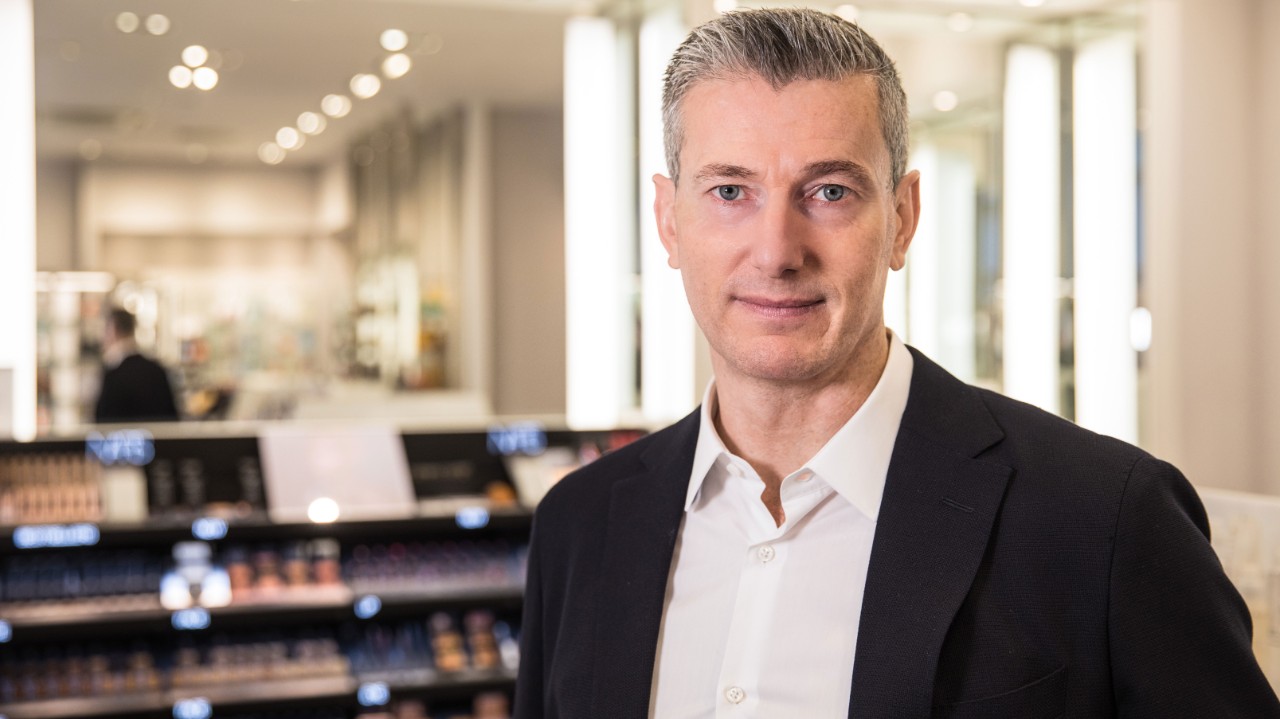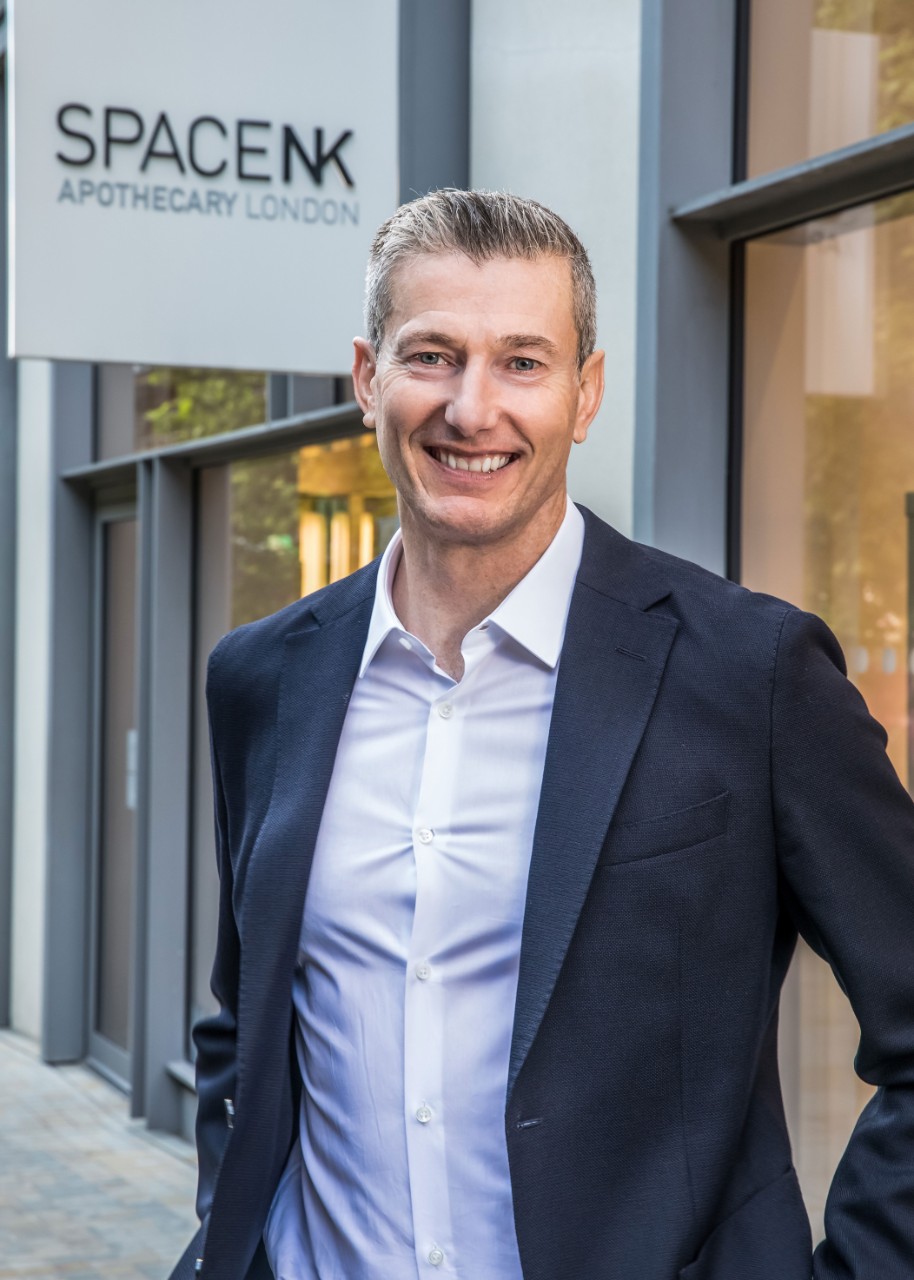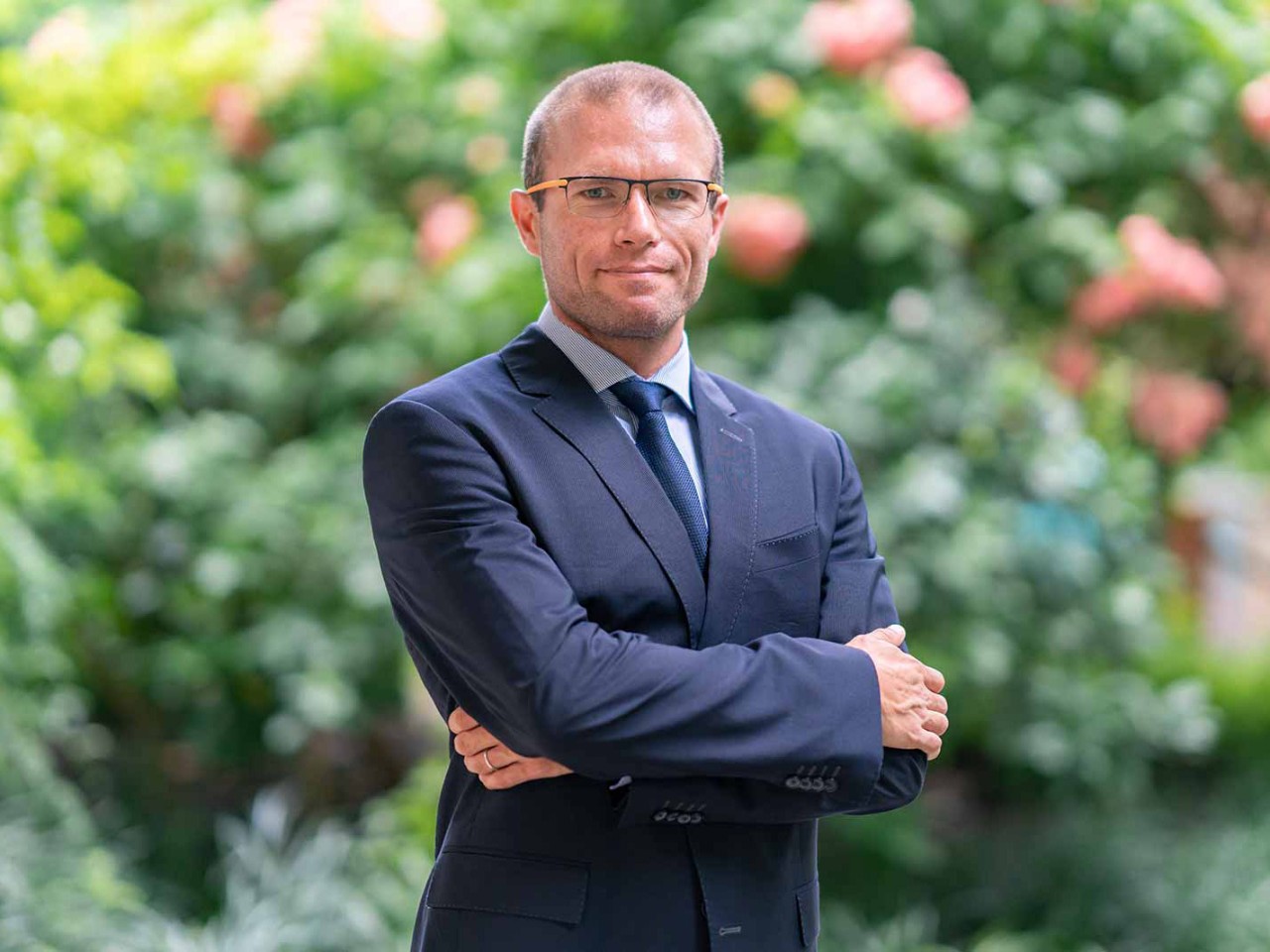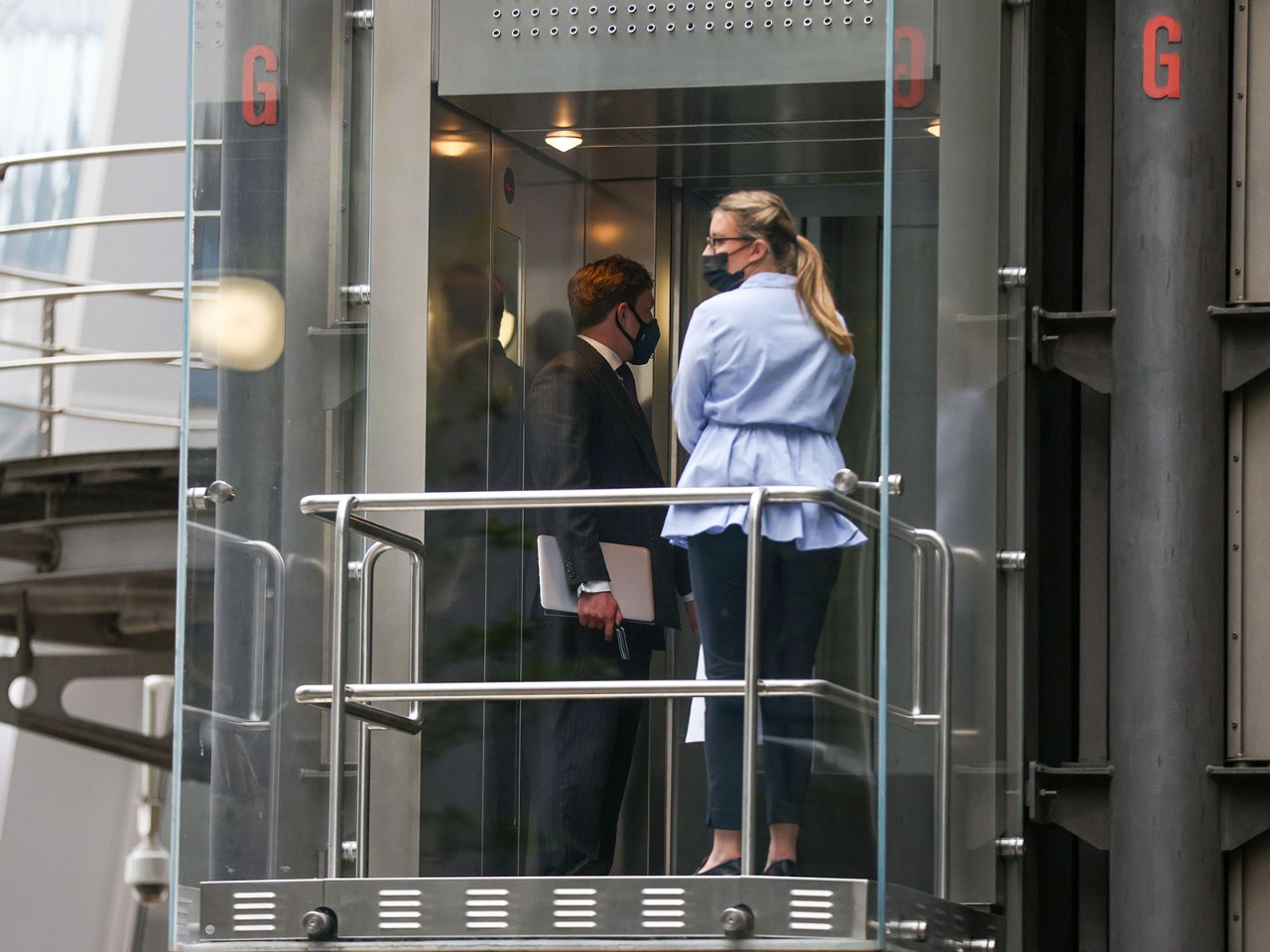
At the beginning of March 2020, as the financial year-end approached, Graham Taylor FCCA, CFO of the luxury-brand cosmetics and skincare retailer Space NK, presented the budget for the next financial year to the board.
‘We had a quick chat at the end of the meeting about Covid-19, and the budget was signed off,' Taylor recalls. 'Within a week, the budget was in the bin.’
‘Before too long, it became apparent that this wasn’t about our survival – it was an opportunity’
The pandemic wreaked havoc on the UK high street and on bricks-and-mortar retailers across the world. Space NK, which turns 30 this year, has developed a healthy business in the UK of 76 stores in high-end locations, as well as a wholesale business in the US, supplemented by a growing online presence.
‘Initially, cash conservation was critical. I did more cashflow modelling in those first few weeks of the pandemic than I’d done in my entire career,’ Taylor says. ‘It quickly became clear that agile management was going to be key to charting a way through.
‘On closing the stores, we brought all the stock back to the warehouse in anticipation of an online surge. And before too long, it became apparent that this wasn’t about our survival; it was an opportunity.’
E-expansion
The company’s entire retail team was placed on furlough, which allowed decisions to be focused in the digital space. Space NK led the way, Taylor says, with the introduction of virtual beauty consultations.
‘We could react much more quickly,' he says. 'I had paused supplier payments but could reopen the cash tap, and our bank was very supportive. We identified the distribution centre as the primary point of exposure to Covid in our operation, so we put the staff on split shifts so work could carry on if there was an outbreak – and we’ve managed to keep operational throughout.’
‘The decisions we make now will be key in adding value to the business in years to come’
The numbers
£102.9m
Revenue to 30 March 2019
£125.7m
Revenue to 30 March 2020
£3m
Profit to 30 March 2020
578
Employees
Where many other retailers struggled, Space NK grew its business during the pandemic. ‘We achieved what we wanted to do, which was to migrate more of our customers online and gain new customers through the digital channel,' Taylor says. 'We’ve shifted up a gear and increased our market share.’
Level of protection
Space NK’s US business was provided with some level of protection from the pandemic, as the board had taken the decision in 2019 to close its retail operations and focus on wholesale; it supplies Bloomingdale’s and Nordstrom in the US, and recently agreed a deal with the Hudson's Bay Company in Canada.
‘The retail operations in the US had been losing money for years for a number of reasons,’ Taylor says. The business struggled to compete with the dominance of LVMH-owned Sephora, in a market of very tight margins.
‘The cost of bricks-and-mortar retailing is much higher in the US, and the online market is very driven by promotions, which creates a race to the bottom in terms of price,’ Taylor says. ‘That wasn’t right for us as a retailer of premium brands. The decision to close our shops there was a tough and emotional one for the board, but they are delighted that they made it.’
Twin-track future
As shoppers return to the high street, Taylor says that Space NK will focus on its online business while maintaining a bricks-and-mortar presence – a place for customers to get expert advice and for brands to express themselves.
‘We’re not intending to close stores, but we want to grow our online market share,' he says. 'We’re investing the money we would have spent in opening stores on technology. Having just completed a re-platforming of our website, we are now building a bespoke service in different countries to enhance customer experience.’
This multichannel strategy is not a change of direction, he stresses: ‘Our CEO was previously head of the digital business, which was a clear declaration of intent from the board.’
‘It’s not enough to embrace change, you have to drive change – and in today’s market, at an unprecedented rate’

CV
2019
CFO, Space NK
2017
CFO, Smythson of Bond Street
2009
FD, Swarovski UK & Ireland
2007
FD, Browning Group
2001
Group financial controller and company secretary, LA Fitness
1997
Financial controller, Taylor Woodrow
While maintaining a physical presence will always be a priority – ‘the beauty business is about making people feel good about themselves, and you can’t replace personal interaction’ – the company is experimenting with different approaches. ‘We tried a pop-up store in Spitalfields Market in London recently and people were queuing for two hours for a consultation. We occupy a unique position in luxury beauty – an established and evolving high-street offer with a growing online customer base.’
The company will try the pop-up approach again in Leeds, as the lease on its current property is about to end. With landlords desperate to fill empty units and shops, it’s an attractive model. ‘There are opportunities to be had on the high street,’ Taylor says.
Time to grow
As CFO, a further priority for Taylor is working with his executive colleagues to identify and deliver growth in the changing retail landscape. Space NK has been owned by Manzanita Capital, the private equity (PE) partnership run by the Fisher family, owners of Gap, since 2002.
Working with PE investors, he says, is about being ‘laser-focused on the priorities and ensuring the organisation from top to bottom is clear on the objectives. As management we are committed to growing shareholder value. The decisions we make now will be key in adding value to the business in years to come.’
This is not Taylor's first experience of working with PE – earlier in his career he was financial controller at LA Fitness, which delisted from AIM when it was bought by a private equity house in 2005.
‘Switching from public to private was a dramatic change of emphasis for the business,’ he says. ‘We moved from managing the expectations of analysts and shareholders – if you present a set of numbers, you are very conscious that you will have to explain if you don’t hit them – to pressure of a different nature. It was all about results and value creation. They are very different worlds, but I have been very fortunate to experience both.
'From startup to end of life, owner-managed to plc, the key business drivers remain the same, but the degrees of emphasis placed on each vary dramatically.’
Roles in retail
Taylor's career has certainly been eventful and has taken in many of the highs and lows of life in retail. After qualification, an MBA and a series of roles including working to set up an online portal business for silver-surfers during the dotcom boom, his first FD role was with a private company, Browning Group, which supplied Dune shoes to large retailers such as Marks and Spencer and Next.
‘It was a perfect storm,’ he recalls. ‘Lehman Brothers collapsed, and the resulting crisis put deflationary pressure on the UK high street. One of our customers, [shoe retailer] Dolcis, went bust on Christmas Eve – I spent that Boxing Day in a warehouse, trying to identify our products so we could claim ownership of title.’
He adds that, at the same time, Chinese wage inflation was pushing up cost prices, resulting in a margin squeeze from both sides – to such an extent that the decision was made to wind the company down rather than face administration.
‘We scaled down the business but ultimately made that tough decision to manage the company through the final stage of its lifecycle,' Taylor says. 'My role became one of trying to recover as much money as I could for the owners.
‘It was an interesting time in my career. I recall standing outside a factory in China, with an interpreter, telling the workers that we had to shut down. I wouldn’t want to repeat it, but I learned a lot.’
Next was Swarovski, the Austrian crystal retailer. ‘By 2010, changes were well on the way on the high street, with omnichannel customer expectations crossing over into more and more areas of retail, and jewellery was no exception,’ he says.
‘In those days retailers were talking the language of seamless integration, but behind the scenes they were working with sticky tape and glue to get their systems to link with one another. My role at Swarovski – being responsible for all the support functions – was about delivering the service and information to the rest of the business to allow them to make informed decisions.’
Looking for a further challenge after a ‘fantastic’ eight years at Swarovski, he took a role at Smythson of Bond Street – retailer of high-end diaries and leather goods – ‘with my eyes wide open’.
Despite its prestigious heritage, the business was in urgent need of a clear strategy and refinancing, and the management team, he says, was ‘essentially a turnaround team’. Its products demanded locations where rents were high, and turnover was not keeping up with costs. ‘It was 18 months of pure change management.’
For accountants working in the retail sector, his is not an unusual story, he says, and there are more changes still to come: ‘If you want to work in retail, it’s not enough to embrace change, you have to drive change – and in today’s market, at an unprecedented rate.’




